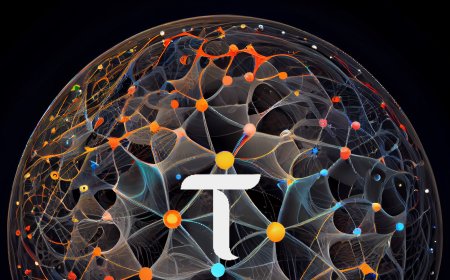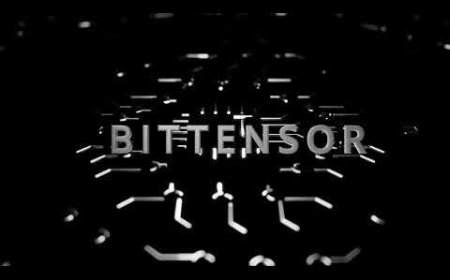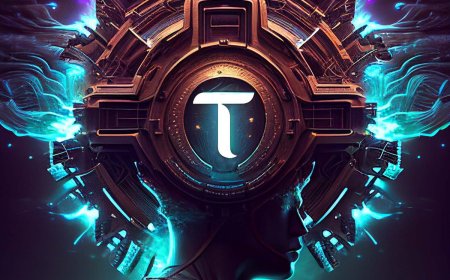Bit Tensor: Revolutionizing AI Development through Decentralized Neural Networks
Bit Tensor is an ambitious project that aims to create a decentralized artificial intelligence network using blockchain technology. This innovative approach combines the power of neural networks with the decentralized nature of blockchain to accelerate AI development and make it more accessible to a wider audience.
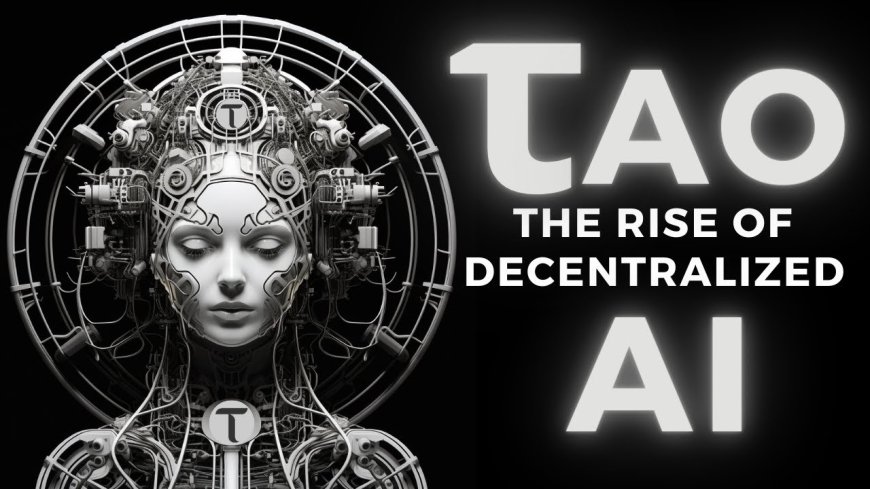
In this article, we'll explore the key aspects of Bit Tensor, its potential impact on the AI industry, and why it's being hailed as a groundbreaking development in both the AI and blockchain spaces.
What is Bit Tensor?
At its core, Bit Tensor is a decentralized AI marketplace where participants can contribute computational power, develop AI models, and access AI capabilities. The project was founded by Jacob Steeves and Ala Shaabana, who envisioned a future where AI development is not controlled by a few large corporations but is instead a collaborative effort involving a global community of developers, researchers, and users.
Bit Tensor operates on a principle similar to Bitcoin mining, but instead of solving cryptographic puzzles, the network's participants are producing and validating AI intelligence. The system consists of three main components:
- Miners: Computers that run AI models and produce intelligence outputs.
- Validators: Nodes that evaluate the quality and value of the intelligence produced by miners.
- Tau Token: The native cryptocurrency of the Bit Tensor network, used for incentivizing participants and accessing AI services.
The Power of Decentralized AI
One of the key advantages of Bit Tensor's approach is its ability to create a compounding of knowledge within the network. Traditional AI development often requires starting from scratch with each new model, even when building upon existing work. Bit Tensor solves this problem by allowing models to learn from each other and build upon existing knowledge.
This approach has led to rapid progress in the network's capabilities. In just under a year of operation, Bit Tensor has reportedly reached a collective size that surpasses GPT-2 and is approaching GPT-3 levels. This accelerated development is made possible by contributions from a large number of participants, rather than relying on the resources of a single company.
The Synapse Update and Future Developments
Recently, Bit Tensor underwent a significant upgrade called Synapse (version 3.0.0). This update expanded the network's capabilities in several ways:
- Improved efficiency: Reduced network costs by approximately 100 times.
- Enhanced versatility: Allowed for different types of AI outputs beyond just tensor-based representations.
- Increased bandwidth: Enabled more requests per second and broader AI capabilities.
The Bit Tensor team is also working on expanding the network's capabilities to include image modality and eventually multi-modal models. This expansion will allow the network to handle a wider range of AI tasks and applications.
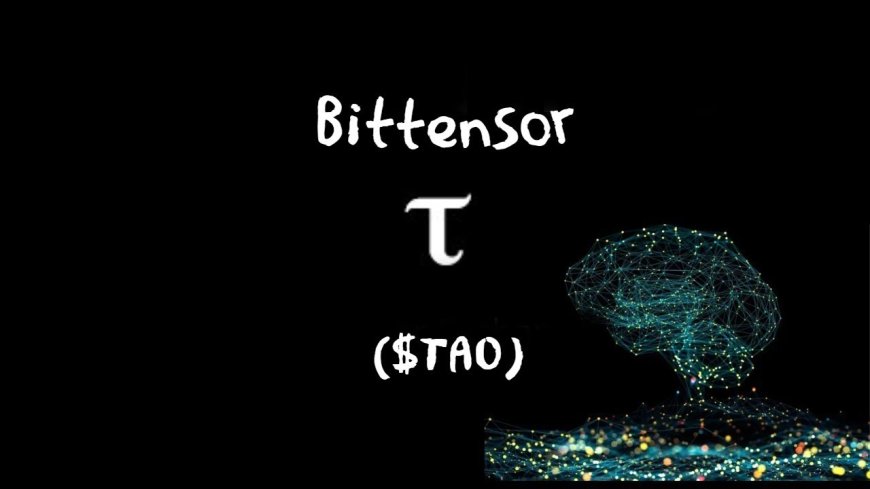
The Tau Token and Incentivization
The Tau token plays a crucial role in the Bit Tensor ecosystem. It serves as both an incentive for miners and validators and a means of accessing AI services on the network. The token follows a Bitcoin-like emission schedule, with a total supply cap of 21 million and halvings approximately every four years.
Currently, Tau is not listed on major exchanges due to regulatory concerns. The team is taking a cautious approach to ensure compliance with securities laws and is working towards integration with the Polkadot network as a step towards greater decentralization and accessibility.
Challenges and Opportunities
While Bit Tensor presents an innovative approach to AI development, it also faces some challenges:
- Hardware requirements: As the network grows, the computational demands for miners and validators increase, potentially limiting participation to those with significant resources.
- Adoption: The project is still in its early stages and needs to attract more developers and users to reach its full potential.
- Competition: Bit Tensor is entering a space dominated by large tech companies with substantial resources.
However, these challenges also present opportunities:
- Democratization of AI: By allowing anyone to contribute and benefit from the network, Bit Tensor could accelerate AI innovation.
- New business models: The decentralized nature of the network opens up possibilities for novel AI-powered applications and services.
- Improved AI ethics: A more open and collaborative approach to AI development could lead to more transparent and ethical AI systems.
The Future of Bit Tensor
The founders of Bit Tensor have ambitious goals for the project's future:
- Becoming a focal point in the AI industry, known for its scale and performance.
- Developing a suite of high-quality AI applications built on top of the Bit Tensor network.
- Establishing Bit Tensor as the "neural internet" where people train and host their AI models.
In the next three to five years, the team hopes to see:
- Bit Tensor recognized as having the largest neural network in the world, similar to how Bitcoin is known for having the largest supercomputer network.
- A thriving ecosystem of applications built on top of Bit Tensor, showcasing the power of decentralized AI.
- Increased ease of use for developers, making it the default method for fine-tuning and running inference for AI applications.
Conclusion
Bit Tensor represents a bold attempt to reshape the AI landscape by combining the power of blockchain technology with artificial intelligence. By creating a decentralized marketplace for AI capabilities, the project aims to democratize access to AI and accelerate innovation in the field.
While there are certainly challenges ahead, including high hardware requirements and competition from established players, the potential benefits of a more open, collaborative approach to AI development are significant. As the project continues to evolve and attract more participants, it will be fascinating to see how Bit Tensor impacts the future of artificial intelligence and blockchain technology.
The success of Bit Tensor will largely depend on its ability to attract a critical mass of developers, miners, and users. If it can achieve this, it has the potential to become a major player in the AI industry, offering a truly decentralized alternative to the current AI landscape dominated by large tech companies.
For those interested in the intersection of AI and blockchain, Bit Tensor is definitely a project worth watching. Whether it will succeed in its ambitious goals remains to be seen, but it's clear that the project is pushing the boundaries of what's possible in both the AI and blockchain spaces. As we move towards an increasingly AI-driven future, projects like Bit Tensor may play a crucial role in ensuring that the benefits of AI are widely distributed and that the technology develops in a way that serves the broader interests of humanity.
Source : @The Bittensor Hub.

